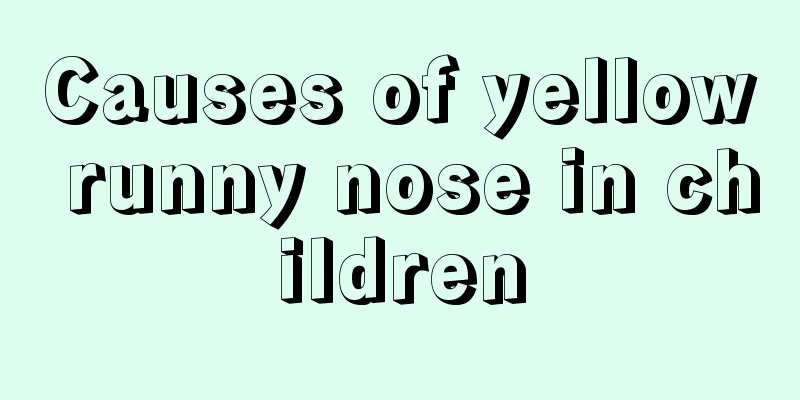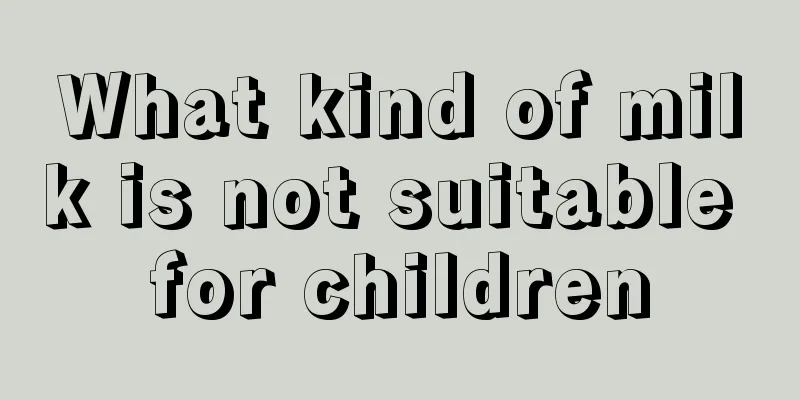How to treat pneumonia in a full-month baby

|
Pneumonia is a relatively serious disease for us adults. So, wouldn’t it be even more serious for babies with weaker physical fitness? Sometimes, some mothers are careless and neglect to take care of their babies, causing their babies to suffer from pneumonia. So, if a one-month-old baby gets pneumonia, how should it be treated? Next, let me explain it to you. (I) General care and supportive therapy for neonatal pneumonia: 1. The room temperature should be kept at around 20°C and the relative humidity should be 55-65% to prevent respiratory secretions from drying out and becoming difficult to cough out. Prevent cross infection. 2. Pay attention to nutrition and water supply; breastfeeding should be done as much as possible. If bottle-feeding is required, the amount and concentration of milk can be determined according to the baby's digestive function and condition. If the baby has diarrhea, skimmed milk should be given. A light, easily digestible diet rich in multiple vitamins should be provided to infants or children. Children in the recovery period should be given nutritious, high-calorie food. For critically ill children who cannot eat, intravenous infusion is given to supplement calories and water. 3. Keep the respiratory tract open: remove nasal crusts, nasal secretions and respiratory tract sputum in time. Improve ventilation function, increase alveolar ventilation, correct hypoxia, and reduce CO2 retention. For those with a lot of thin phlegm, you can turn over and pat your back repeatedly to help the phlegm be discharged. You can also take ammonium chloride mixture as an expectorant. If the sputum is thick and difficult to cough up, you can suction the sputum or use ultrasonic atomization inhalation. (II) Application of anti-infective drugs for the treatment of neonatal pneumonia: 1. Choice of antibiotics. (1) Gram-positive coccal infection of the lungs: For pneumococcal pneumonia, penicillin is still the first choice. Those who are allergic to penicillin should be given erythromycin instead. (2) Gram-negative bacterial infection of the lungs can generally be treated with ampicillin or aminoglycoside antibiotics. Pseudomonas aeruginosa pneumonia can be treated with Fudaxin, Junbizhi, etc. (3) Mycoplasma pneumonia: Erythromycin is often used, and the course of treatment is preferably 2 weeks. (4) For pneumonia with unclear bacterial origin, broad-spectrum antibiotics should be selected according to the condition and used in combination (one of the antibiotics should be biased towards Gram-negative bacteria). 2. Application of antiviral drugs. Interferon, ribavirin. (iii) Oxygen therapy. (IV) Symptomatic treatment: 1. Reduce fever and calm down. 2. Eliminate phlegm, relieve cough and relieve asthma. (V) Treatment of damage to important organs. The above is what I want to introduce to you today about how to treat pneumonia in full-month babies. You can learn about it. I hope my sharing will be helpful to you. The editor reminds everyone to pay more attention to the baby's physical health and not let the baby catch a cold. The editor also wishes your baby good health. |
<<: How to eliminate indigestion in full-month babies
>>: How many times a day is normal for a six month old baby to poop?
Recommend
What to do if baby has dry skin on face
For babies, their skin is more sensitive than tha...
One week eight month old baby not talking
We all know that babies usually start to speak wh...
What are the symptoms of baby's allergy to egg yolk?
We all know that the egg white is mainly rich in ...
What is the cause of deafness in newborns?
Newborn deafness may be congenital or acquired. C...
When is the peak period for hand, foot and mouth disease? Experts will tell you
As an infectious disease, hand, foot and mouth di...
What are the symptoms of leukemia in children?
Leukemia is still a very difficult disease to cur...
Symptoms of electrolyte imbalance in babies
If a baby has electrolyte imbalance, the harm is ...
Vomiting in a 3-year-old child
Three-year-old children's physical developmen...
What are the dangers of rabies vaccination for children?
Rabies vaccine is an antibody that is usually inj...
What can’t babies eat when they have measles? Don't eat randomly anymore.
Parents, please take note: if your baby has measl...
What medicine is effective for a 10-year-old child with a fever?
Everyone has experienced a fever, and we all know...
Where is the best place to treat children's ADHD?
Children in childhood are all naughty and like to...
What should babies eat if they have damp-heat in their stomach?
When children suffer from diarrhea, constipation,...
What are the causes of dizziness in children?
If children show symptoms of dizziness, parents s...
Why is my two-year-old baby retching?
The baby's stomach is more sensitive, and foo...









